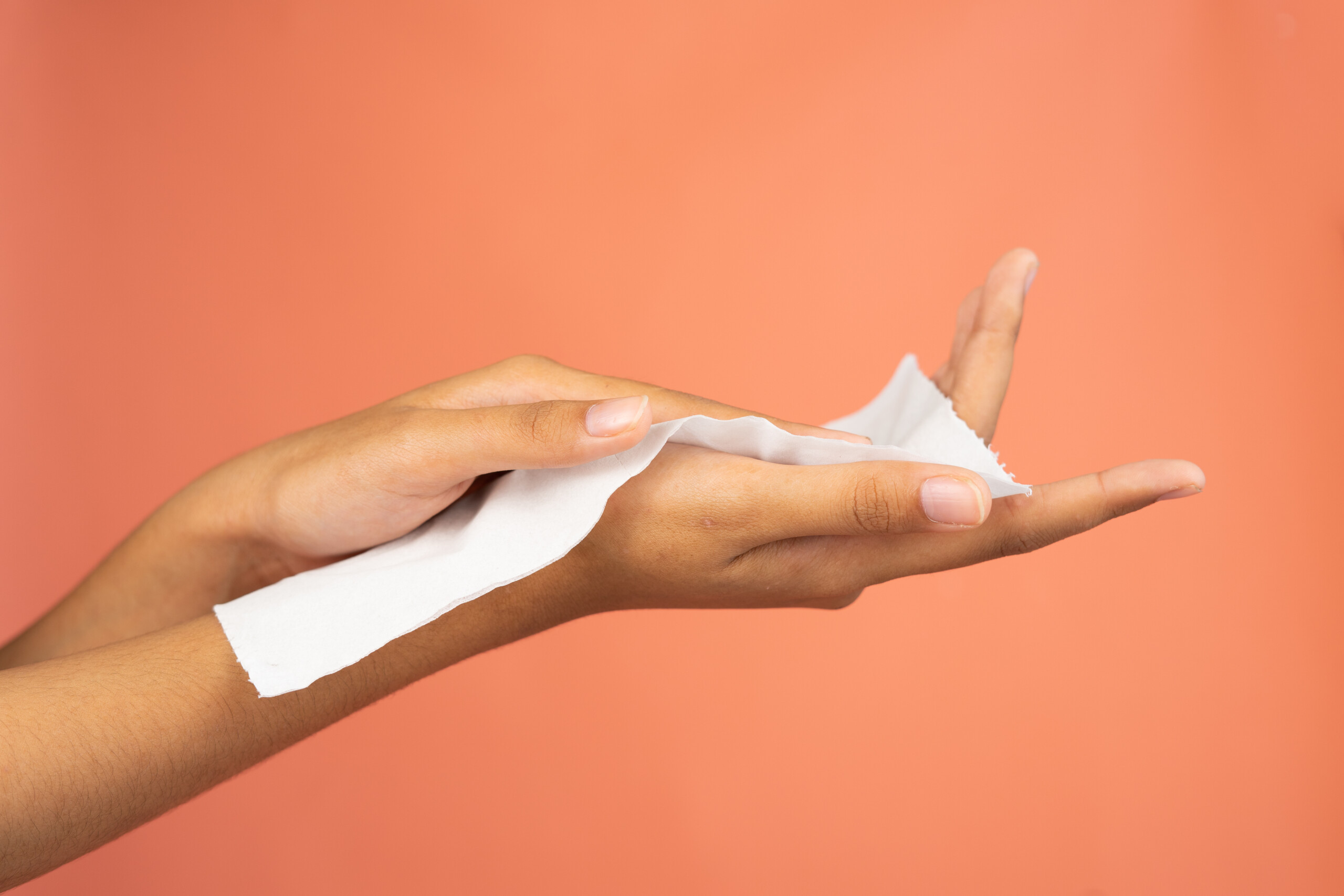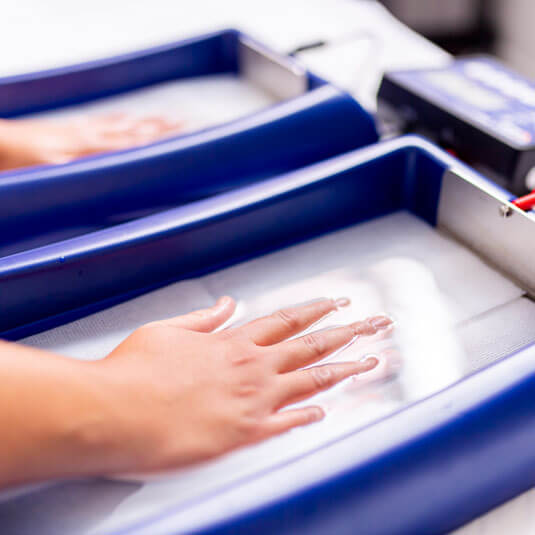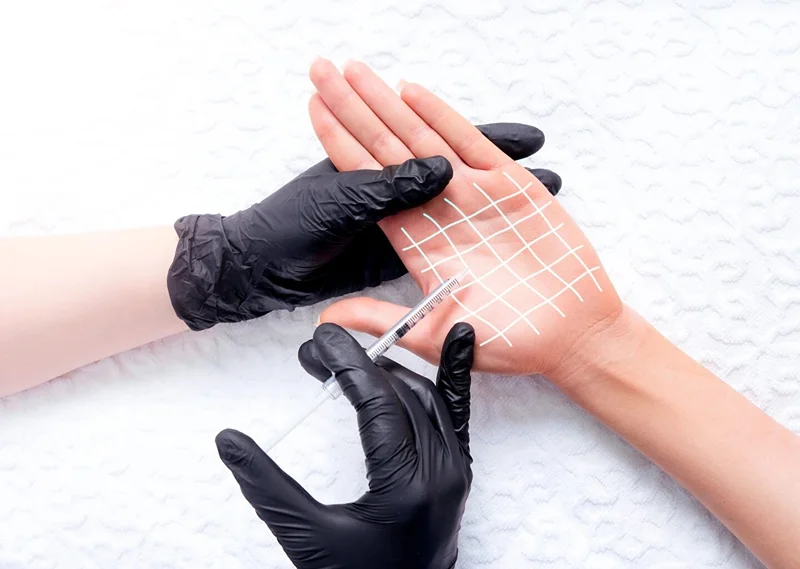Dermatology Tips and Treatments for Hyperhydrosis of Hands: Innovative Solutions
Dermatology Tips and Treatments for Hyperhydrosis of Hands: Innovative Solutions
Blog Article
Comprehending the Source of Excessive Sweating and Its Effect On Every Day Life
While it is typically understood as a physical action to control body temperature, the triggers for excessive sweating can vary commonly amongst people, including not just physical elements however also emotional and emotional elements. By diving right into the origin causes of hyperhidrosis and discovering its multifaceted results, a deeper understanding of this pervasive concern can be acquired, shedding light on the complexities that people grappling with extreme sweating browse on an everyday basis.
Physiology of Sweat Glands
The law of sweat production, an important physical procedure, is mainly regulated by the task of sweat glands distributed throughout the human body. Gland are classified right into two main types: eccrine and apocrine glands. Eccrine glands are the most numerous and are found in nearly all areas of the body. They play an important duty in thermoregulation by producing a watery liquid onto the skin's surface area, which vaporizes and aids cool down the body down. In contrast, apocrine glands are focused in areas rich in hair roots, such as the armpits and groin, and their secretions are thicker and milky in appearance.
When the body temperature increases, either due to physical task, heats, or psychological tension, the nerves sets off the gland to produce sweat. This sweat is made up mostly of water and electrolytes like salt and chloride. The process of sweat manufacturing is essential for keeping the body's interior temperature level within a slim, optimum range, highlighting the essential function gland play in human physiology.
Triggers for Excessive Sweating
In comprehending the origin of too much sweating, it is essential to recognize the triggers that can cause this physical reaction. Excessive sweating, also called hyperhidrosis, can be triggered by different elements, both ecological and physical. One common trigger is psychological anxiety or anxiety, which can stimulate the body's gland to create even more sweat than is necessary for cooling down. Physical exertion, heats, and spicy foods are likewise known to set off too much sweating in individuals prone to this condition. Certain medical conditions like hyperthyroidism, menopause, or diabetes mellitus can add to excessive sweating as well.
Moreover, medicines such as some antidepressants, opioids, and particular supplements can additionally function as triggers for hyperhidrosis. Recognizing these triggers is essential in managing too much sweating efficiently - Sweaty hands treatment. By identifying and addressing the specific triggers that motivate extreme sweating in a private, medical care carriers can develop personalized therapy strategies to ease this problem and enhance the person's lifestyle
Medical Issue Associated
Connected with excessive sweating are various clinical conditions that can aggravate this physiological reaction. One common problem is hyperhidrosis, a condition defined by abnormally increased sweating that surpasses the body's thermoregulatory requirements. This can materialize in focal locations like the hands, soles, underarms, or face, impacting a person's quality of life as a result of social embarrassment and pain.
Additionally, endocrine disorders such as hyperthyroidism, diabetes, and menopausal hot flashes can additionally lead to too much sweating. Hyperthyroidism triggers an overflow of thyroid hormonal agents, increasing metabolic process and setting off sweating.
Additionally, infections like endocarditis, tuberculosis, and hiv have actually been connected with evening sweats, an usual signs and symptom known to disrupt rest and impact overall well-being. These medical problems highlight the diverse variety of underlying variables that can contribute to too much sweating, necessitating thorough examination and management by medical care specialists.
Emotional and Emotional Aspects

Effect On Social Interactions
Extreme sweating can have profound results on a person's capability to engage pleasantly in social communications. The noticeable signs of sweat spots or wet patches on apparel can cause embarrassment and self-consciousness, causing individuals to take out from social circumstances. This withdrawal can affect partnerships, limit social tasks, and impede personal and specialist growth.

In addition, the anxiety and self-esteem problems coming from too much sweating can influence communication and interpersonal abilities. People might struggle to concentrate on conversations, take part in group tasks, or reveal themselves with confidence. This can result in feelings of seclusion and isolation, as social connections come to be challenging to keep.
Conclusion

While it is typically understood as a physiological reaction to regulate body temperature level, the triggers for extreme sweating can vary extensively amongst individuals, including not just physical aspects but additionally psychological and emotional elements. By diving right into the root triggers of hyperhidrosis and exploring its complex results, a much deeper understanding of this prevalent concern can be obtained, dropping light on the intricacies that people grappling with too much sweating browse on a day-to-day basis.
Physical physical effort, high temperatures, and spicy foods are also recognized to cause extreme sweating in individuals vulnerable to this problem. By recognizing and dealing with the particular triggers that motivate extreme sweating in a private, medical care providers can create personalized therapy strategies to alleviate this problem and enhance the individual's high quality of life.
Too much sweating can have profound impacts on a person's capability to engage pleasantly in social communications.
Report this page